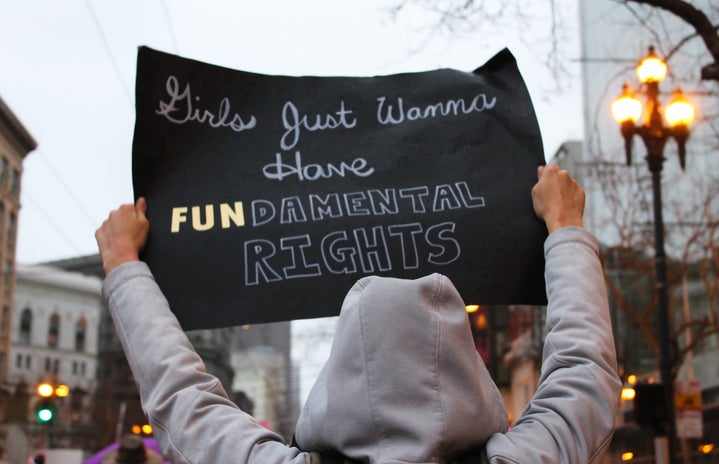In light of Zara McDermott’s recent BBC iPlayer documentary, a conversation has arisen on social media regarding ‘Revenge Porn’. Revenge Porn refers to the ‘sharing of private, sexual materials, either photos or videos, of another person without their consent and with the purpose of causing embarrassment and distress’ (gov.uk).
Zara McDermott is a former Love Island star, and in her documentary, she discusses her experiences with revenge porn and the public’s reaction to it. McDermott has unfortunately been a victim of revenge porn on two separate occasions, the first occurring when she was only 14. She says she felt pressured by a boy she liked in school to take and send explicit images of herself, which were subsequently shared around her school. However, when the staff found out, she was punished rather than the offender. The second time it occurred, images of her came out during her time in the Love Island villa, where of course the contenders are not allowed their phones. As a result, she did not find out until after she had got out. Her testimony highlights the sincere impact that revenge porn can have; she discusses how she felt as though she ‘just wanted to die.’
The term ‘revenge’ implies that the perpetrator is doing it to cause malice in response to an action by the victim, to get back at them or humiliate them. This often happens after the victim has broken off the relationship, the offender wants to reciprocate the upset that they have faced. In most instances, they will send the images or videos to the victims’ friends and family or upload the media with the victim’s social media platform names and their rough location, in order for them to reach people close to the victim and result in as much malice as possible.
Although the main social networking sites (Twitter, Reddit, Facebook etc.) have all pledged to change their policies to diminish the threat of revenge porn. Google has stated that they will remove images of revenge porn upon request, however, the internet can be very difficult to monitor, and UK Charities have reported increasing incidents. In 2020, a UK revenge porn helpline saw an 87% increase in the number of adults seeking support for revenge porn, the highest the helpline has ever seen.
Women’s Aid Charity Chief Execute Polly Neate highlights that ‘Revenge porn must be approached as another kind of psychological abuse and controlling behaviour, it is a form of coercive control that can be used to manipulate and control the victim. It is central to domestic violence and must be considered as such’. Women’s rights activist Kate Isaacs, the creator of the ‘Not Your Porn’ campaign is calling for a better regulation of porn distribution, to make sure that these videos are uploaded with consent, as in many cases they are not.
Revenge porn has been a crime since 2016, but as the exact law states, ‘with the purpose of causing embarrassment and distress’, it is often difficult to prosecute as it is hard to prove the intent. Recently, however, the threat of revenge porn has now become illegal and will be punishable by up to two years in prison. This is vital as it is recognition of revenge porn as a form of domestic abuse. This law is part of a series of amendments being made to the domestic abuse bill, which will help people to feel safer in relationships.
Unfortunately, the stigma around revenge porn has always been very intense for the victim, and there are constant incidents of victim-blaming. It is imperative to remember that because someone has sent images of themselves that does not give the receiver the right to then go on and share those images, and focus must be maintained on the perpetrator.



